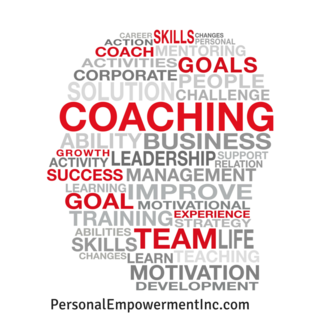Coaching
How Can Coaches Evoke Awareness?
State of knowledge in coachees explains how coaches can evoke awareness.
Posted February 16, 2021

The International Coaching Federation (ICF) is one of the oldest organizations in the industry leading the direction of the coaching field. In fact, ICF has established what they believe are core competencies and ethical practices for which coaches must have to effectively facilitate the coaching process.
One of these key skills the ICF suggests a coach has is the ability to evoke awareness in the coachee. Evoking awareness means, “[to] facilitate the [coachee's] insight and learning by using tools and techniques such as powerful questioning, silence, metaphor, or analogy” (ICF, 2021). However, what I have come to understand as a coach, I must first identify and understand the coachee’s “state of knowing” in relationship to the coachee's values, beliefs, perceptions, and desired outcome.
States of Knowing
In my study, Understanding Help Seeking Behavior in Married African American Couples (Reid, 2019), I discuss the literature and our current understanding of the definition of awareness. For the purposes of this post, I will summarize below what I discovered in my study, and provide the connection to how coaches can effectively evoking awareness. Below is a direct quote:
“Schipper (2014) proposed awareness can be described as a type of knowledge, including a lack of knowledge pertaining to a currently existing object or event. This definition falls in line with how awareness is described in other studies. For example, according to Atherton (2013), when researchers and experts speak about awareness they are referring to what people do or do not know, meaning a person’s knowledge or the knowledge gained. Atherton defined this type of awareness as self-awareness of knowledge. However, there is also knowledge itself, meaning being aware of the type of knowledge needed (Atherton, 2013). Based on Atherton’s definition of awareness, Grime and Dudley (2014) proposed four states of knowledge which fits into two self-awareness categories: Category A: No self-awareness of knowledge where a person can possess knowledge about something, but not realize she or he has this information (i.e., unconscious competence), or lack knowledge about something and not realize knowledge is lacking (unconscious incompetence); Category B: Self-awareness of knowledge where a person can possess knowledge about something and realize it (i.e., conscious competence), or be aware knowledge or information is lacking (conscious incompetence). Table 1 illustrates these four states of knowing proposed by Grime and Dudley.”

For coaches, what does this mean when it comes to evoking awareness? Simply put:
- The coach must understand and clarify the coachee’s agenda or goals, ask curious questions, challenge with care, and understand the challenges the coachee is experiencing (self-imposed, real, imagined, internally, or externally).
- The coach must understand where the coachee’s awareness or knowledge is currently resting to effectively partner with the coachee on how to evoke awareness and make objective decisions.
- The state of knowing the coachee falls in will drive how the coach asks questions, and what questions to ask.
Therefore, to evoke awareness, the coach must first identify the coachee’s state of knowing (i.e., what the coachee is aware of knowing and not knowing about themselves and the situation, agenda or challenge presented) through the initial curious questioning process (e.g., confirming the agenda and session agreement). Based on the coachee’s state of knowing, the coach can then ask the most powerful questions, implement activities, and challenge the client’s perceptions to produce an “aha” moment (i.e., awareness) to a “ta-da” moment (i.e., physical action or behavioral response). So, how can coaches evoke awareness based on the coachee’s state of knowledge:
- When the coachee is unaware of what she/he/they know (unconscious competence):
a) Focus on how the coachee handled past experiences
b) Focus on the coachee’s strengths
c) Focus on how to use known resources in new or untapped ways
- When the coachee is unaware she/he/they do not know (unconscious incompetence):
a) Give concrete examples, metaphors, and analogies
b) Offer data, resources, books, videos, or podcasts
c) Use activities to experiment with new ideas or concepts to create opportunities for building awareness
- When a coachee is aware of what she/he/they know (conscious competence):
a) Focus on choices available and how to use or maximize those options
b) Focus on how what is known aligns with values, options, and motivation
c) Focus on how what is known aligns with next steps, actions, and/or behavioral responses
- When a coachee is aware of what she/he/they do not know (conscious incompetence):
a) Brainstorm ideas and concepts of known experiences and information and decide how they can be applied to reach desired outcomes
b) Apply a deductive reasoning process through curious questioning
c) Hold space for the coachee to talk through thoughts, feelings, and experiences,
d) Dive deeper into the meaning of values, beliefs, perceptions, and how knowledge has been previously applied
e) Help the coachee identify the relationships between values, beliefs, and desired outcomes
Finally, experiment. Every coachee is unique. As coaches, we must flow with the coachee in the moment. So, take this into account when considering the coachee’s state of knowledge. You may find that you can use a combination of the approaches to evoke awareness. Nevertheless, the guidance provided above can work well when a coach is able to confirm the coachee’s current state of knowledge.
References
Atherton, J. S. (2013). Knowing and not knowing. Retrieved from http://www.doceo.co.uk/tools/knowing.htm
Grime, J., & Dudley, B. (2014). Developing written information on osteoarthritis for patients: facilitating user involvement by exposure to qualitative research. Health Expectations, 17(3), 164-173. doi:10.1111/j.1369-7625.2011.00741.x
International Coaching Federation. (2021) ICF Updated Core Competencies. Retrieved from https://coachingfederation.org/core-competencies
Reid, D. (2019). Understanding help-seeking behavior in married African American couples. ProQuest, LLC: Ann Arbor, MI.
Schipper, B. C. (2014). Awareness. [Paper]. Department of Economics, University of California, Davis. Retrieved from http://ssrn.com/abstract=2401352




